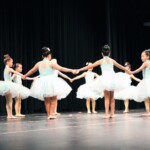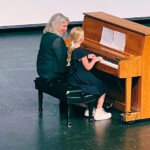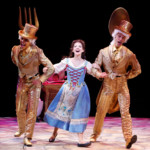Why Performing in a Dance Recital Is So Important — Even If Your Child Is Nervous
If your child is feeling anxious about their upcoming recital — or if you are feeling nervous for them — you’re not alone. It’s totally normal for kids to feel a little unsure before performing on stage. But here’s the truth: that recital moment, however big or small, is one of the most powerful parts of their dance or music education.
In fact, it’s because your child is nervous that the recital matters so much.
Let’s explore why performing in a recital is so valuable — and how it helps kids build real-life skills that last far beyond the stage.
1. Recitals Build Confidence, One Step at a Time
The journey to recital day is full of small victories. Learning choreography or memorizing a song requires commitment, focus, and courage. When kids take the stage, they see what all that hard work adds up to — and it feels amazing.
That rush of pride after a performance? It’s not just about applause — it’s the joy of accomplishing something that once felt scary.
2. Facing Nerves Builds Resilience
Every child feels some butterflies before their first (or even tenth!) performance. Rather than avoiding those nerves, recitals give kids a chance to work through them in a supportive setting.
With the help of their teacher and classmates, they learn to take deep breaths, prepare ahead, and show up anyway. These are tools they’ll use again and again — in school presentations, sports, job interviews, and more.
3. Recitals Teach Teamwork and Accountability
In both music and dance recitals, kids aren’t performing in a vacuum. They’re often part of a group number, ensemble, or class piece. That means they need to be in sync, stay focused, and support one another.
Being part of a performance team teaches kids to take responsibility for their role while also lifting up their peers. They see how every individual effort contributes to a shared success.
4. A Reason to Celebrate Progress
Music and dance lessons are filled with milestones, but a recital gives those achievements a spotlight. Whether it’s a preschooler’s first time on stage or a more advanced student performing a solo, a recital is a celebration of how far they’ve come.
Even if the performance isn’t perfect (and it never has to be!), the growth is what matters most. Parents often say they had no idea how much their child had learned until they saw them on stage.
5. Memories That Inspire the Next Chapter
Many kids look back on their first recital as a defining moment — even if they were scared at the time. It becomes part of their story: “I was nervous, but I did it.”
These performances leave lasting memories that build self-esteem and a sense of identity. Kids start to see themselves as capable performers, creative individuals, and brave learners.
First Dance or Music Recital? Here Are a Few Tips:
-
Normalize nerves. Let your child know it’s OK to feel a little scared — it means they care!
-
Practice routines at home. Even short “living room performances” help ease jitters.
-
Stay positive. Focus on effort and bravery, not perfection.
-
Celebrate the moment. A post-recital ice cream or family hug goes a long way.
Final Thoughts
Recitals aren’t just about showing off — they’re about showing up. Performing helps kids grow in ways that regular lessons alone can’t offer. They build confidence, learn to manage nerves, and experience the joy of sharing their talent.
So if your child is nervous, that’s okay. It means they’re about to do something brave — and that’s exactly where the magic happens.
Signing up for lessons is easy!
- Send us more information about your goals
- Register with us now!
- Give us a call at (402) 576-5792



